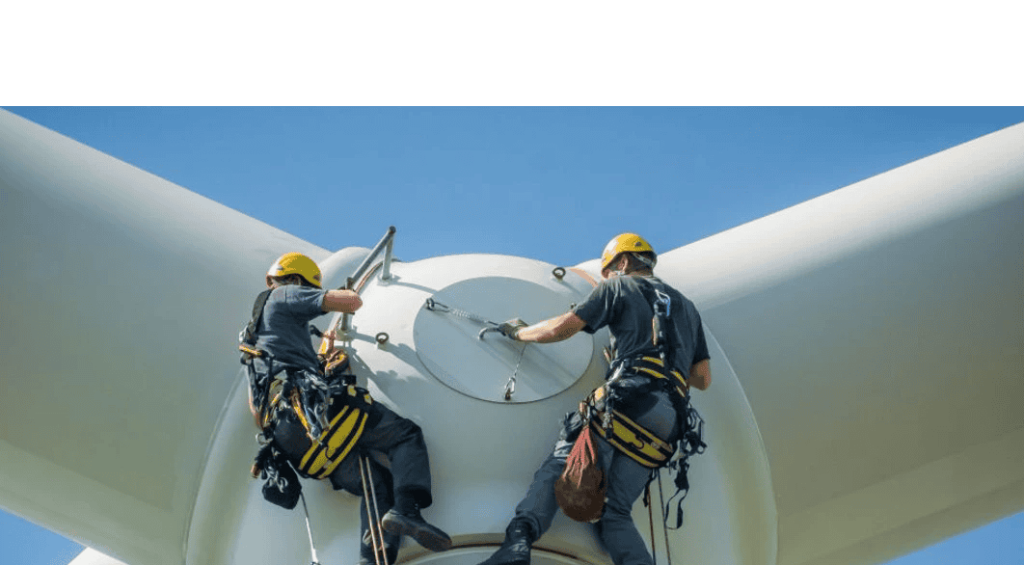The prosperity and economic transformation of Europe and Central Asia (ECA) hinge on making energy reliable and affordable for all.
Across the region, many countries are prioritizing energy efficiency and renewable energy as part of their development strategies —not only to strengthen energy security, but also to create jobs, foster innovation, and lower costs.
Renewables are already the most affordable energy source in many ECA countries and are expected to become even more cost-competitive over the next decade. Globally, energy efficiency already supports 10 million jobs, and that figure is expected to rise by 50% by 2030. In ECA, renewable energy jobs could grow from 200,000 today to over 900,000 by 2040.
But across the region, progress has been uneven.
In some countries, renewables account for less than 10% of electricity generation. Outdated infrastructure, inefficient energy use, and regressive subsidies have made ECA one of the most energy-intensive regions in the world. Structural barriers limited grid access, weak regulatory frameworks, the need for behavioral change at scale, and financing constraints continue to block large-scale deployment. The 2022-2023 energy shock highlighted the urgency of diversifying energy sources and exposed the toll of high energy prices on households and businesses.
Transforming challenges into opportunities
Countries across the region have set ambitious goals for scaling up renewables and energy efficiency. From Türkiye to Uzbekistan, the shift to renewables is accelerating, driven by smart policies and growing investment.
Türkiye is emerging as a regional frontrunner. Despite grid constraints and complex permitting, the country increased the share of renewables in its electricity capacity from 43% in 2016 to 60% today. Renewables now generate nearly 45% of Türkiye’s electricity, with wind and solar contributing over 18%, surpassing domestic coal generation. Wind and solar generation helped avoid US$12 billion in energy imports.
From just a few hundred megawatts in the early 2010s, Poland’s renewable capacity has soared to 34 GW—a more than hundredfold increase that now represents over 47% of the country’s electricity mix.
Croatia is catching up quickly. By late 2024, it had installed around 902 MW of solar capacity, with expectations to surpass 1.5 GW by the end of 2025 and 2.5 GW by 2030, adding 400 MW in 2024 alone.
Uzbekistan is also making major strides. The government plans to reach 3.65 GW of installed renewable capacity by the end of 2025 and 6.95 GW by 2030, with a strong focus on solar and wind.
In high-income countries, energy efficiency has contributed to keeping overall energy consumption flat over the past 20 years. And we are seeing promising examples across ECA.
Between 2017 and 2023, Türkiye mobilized US$8.5 billion in energy efficiency investments, leading to a 14% reduction in primary energy consumption and improving comfort levels for users of retrofitted buildings.
Poland is supporting energy efficiency and clean heating upgrades in over 2.5 million single-family buildings through its €30 billion Clean Air Program.
Kosovo has completed energy efficiency renovations in about a third of its central government building stock and created a revolving fund to scale up energy efficiency investments in a sustainable manner.
Turning knowledge into power
Despite encouraging momentum, too many countries are still facing the same hurdles. Even when financing is available, implementation often falters. Projects are delayed by permitting bottlenecks, grid constraints, unclear regulations, or limited technical capacity. In the absence of adequate de-risking mechanisms and incentive schemes, financing costs rise, undermining bankability. End-user prices may climb due to high financing costs and to associated grid integration costs, such as those related to grid expansion, the need for operational reserves or curtailment in systems lacking sufficient flexibility. As a consequence, fiscal pressure can build when tariffs are subsidized to keep prices affordable for vulnerable consumers.
These are not new problems, and they are not unique to any one country. Yet too often, governments and utilities are left to solve them on their own, often repeating the same mistakes as early adopter countries.
That’s why the World Bank launched the ECA Energy Knowledge Networks—to give countries space to connect, learn from one another, and tackle real-world challenges with shared insight.
The Networks are part of the World Bank Group’s Renewable Energy Scale-up in Europe and Central Asia (ECARES) and the Scaling up Energy Efficiency in ECA (E3) regional investment programs. These programs aim to strengthen energy security, improve energy affordability, and enhance long-term economic growth across the ECA region. Together, they will provide up to US$3.5 billion in World Bank financing and mobilize and enable up to US$7.5 billion in private capital over the next decade.
Communities of practice to accelerate action
The Networks will host a growing number of Communities of Practice, each dedicated to a practical area where peer-to-peer learning can make a tangible difference. The first two—on Utility-Scale Renewable Energy and Energy Efficiency in Buildings—are now underway. Additional communities are being planned, responding to the evolving needs of countries and stakeholders across the region.
Each Community will convene participants through study tours, technical workshops, online engagement, and peer exchanges.
The Networks were launched at the ECA Energy Knowledge Forum in Antalya on 17 June 2025. The Forum brought together government officials, technical experts, and development partners to shape the agenda and connect early participants. But the Forum is just a starting point. The real work will take place in the months and years ahead—across countries, institutions, and communities—through shared effort and shared learning.
The launch of the Networks aligns with the World Bank Group’s evolving focus under the Knowledge Compact and the new World Bank Group Academy, which aim to ensure that knowledge plays a central role in accelerating development outcomes.
Building a secure and affordable energy future in ECA will depend not only on investment, but on the ability to implement well, adapt quickly, and learn together. The ECA Energy Knowledge Networks aim to make that possible.
Source : World Bank



































































